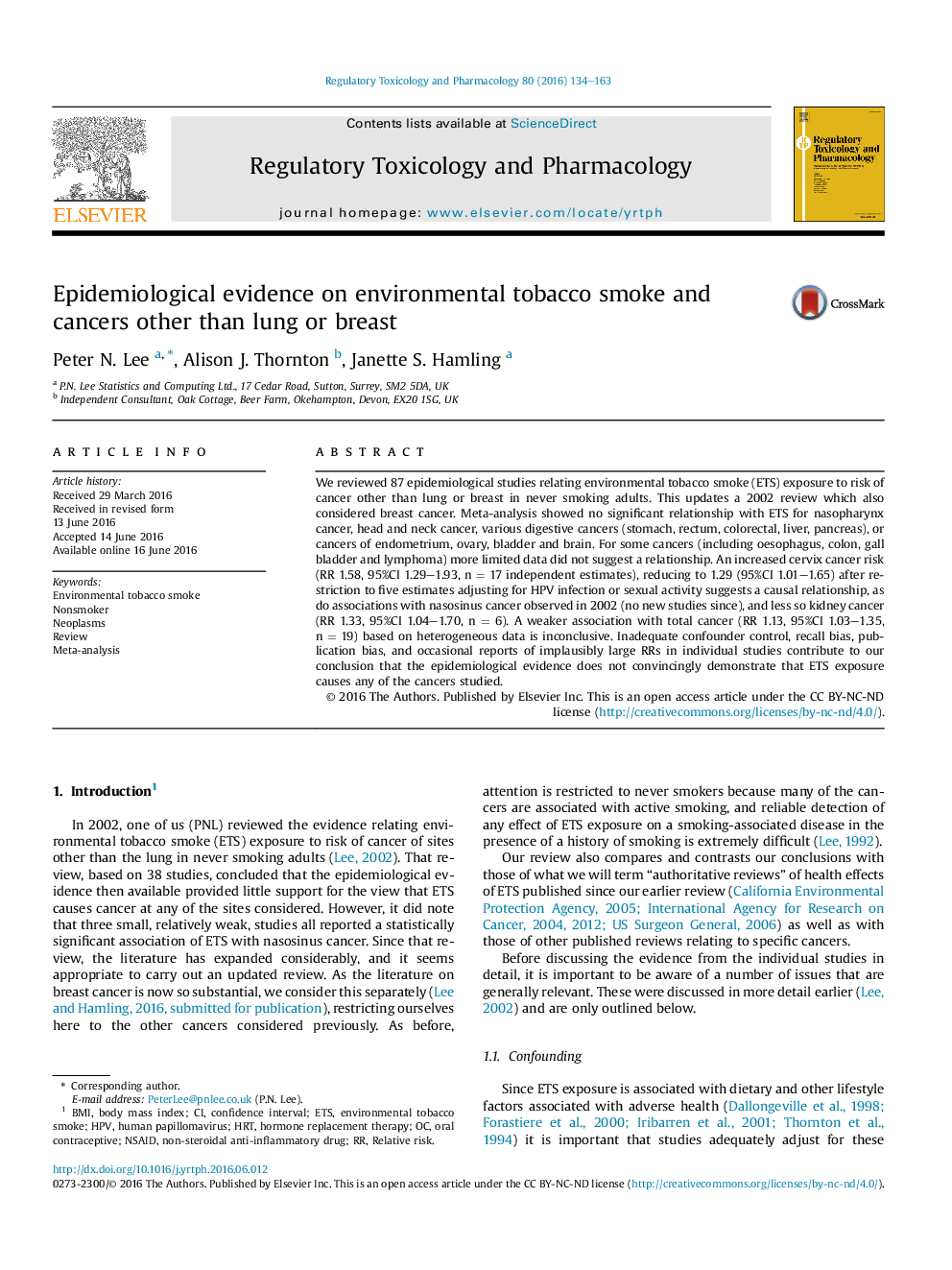| Article ID | Journal | Published Year | Pages | File Type |
|---|---|---|---|---|
| 5855878 | Regulatory Toxicology and Pharmacology | 2016 | 30 Pages |
â¢We reviewed 87 studies relating ETS to risk of cancer other than lung or breast.â¢Most cancer sites showed no relationship, though data were limited for some.â¢An effect was suggested for cervix, nasosinus and, less clearly, kidney cancer.â¢Heterogeneity, confounding, recall and publication bias limit interpretation.â¢The evidence does not convincingly demonstrate ETS causes the cancers studied.
We reviewed 87 epidemiological studies relating environmental tobacco smoke (ETS) exposure to risk of cancer other than lung or breast in never smoking adults. This updates a 2002 review which also considered breast cancer. Meta-analysis showed no significant relationship with ETS for nasopharynx cancer, head and neck cancer, various digestive cancers (stomach, rectum, colorectal, liver, pancreas), or cancers of endometrium, ovary, bladder and brain. For some cancers (including oesophagus, colon, gall bladder and lymphoma) more limited data did not suggest a relationship. An increased cervix cancer risk (RR 1.58, 95%CI 1.29-1.93, n = 17 independent estimates), reducing to 1.29 (95%CI 1.01-1.65) after restriction to five estimates adjusting for HPV infection or sexual activity suggests a causal relationship, as do associations with nasosinus cancer observed in 2002 (no new studies since), and less so kidney cancer (RR 1.33, 95%CI 1.04-1.70, n = 6). A weaker association with total cancer (RR 1.13, 95%CI 1.03-1.35, n = 19) based on heterogeneous data is inconclusive. Inadequate confounder control, recall bias, publication bias, and occasional reports of implausibly large RRs in individual studies contribute to our conclusion that the epidemiological evidence does not convincingly demonstrate that ETS exposure causes any of the cancers studied.
